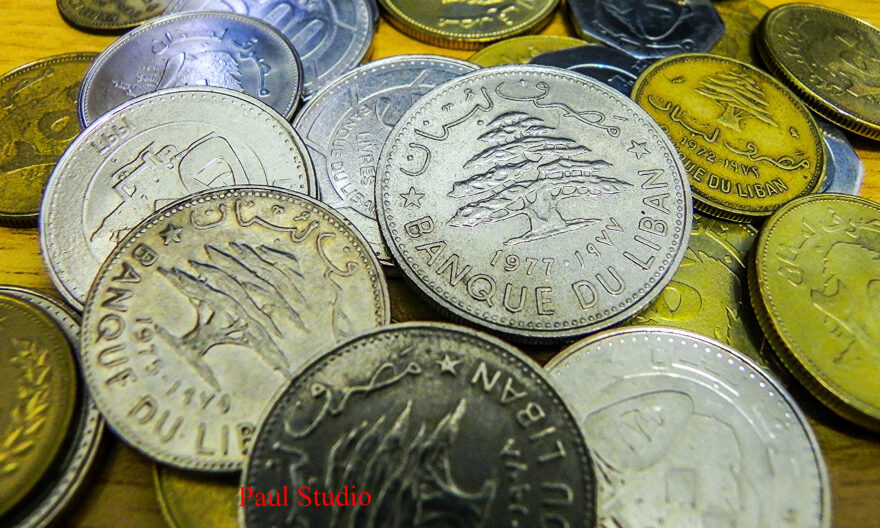
As the situation in Lebanon worsens, aid is slowly pouring into the beleaguered country. Late last month, France and Saudi Arabia pledged $32 million as an initial investment to launch several humanitarian projects in the country, which is currently in the midst of an economic free-fall that has plunged three quarters of its population into poverty.
But the country’s notoriously corrupt establishment is making some international donors wary of extending their helping hand for fear that the cash intended for relief may fall into the hands of greedy politicians. Several high-profile scandals prove that their fears are not at all unfounded.
A nation on the brink
The financial one-two punch dealt by the COVID-19 pandemic and the war in Ukraine has shocked the world’s economy, sending food and fuel prices spiralling across the globe. But while the effects of this unprecedented crisis are being felt by almost every national economy, some countries have been struggling more than others.
With the obvious exception of Ukraine, Russia and Belarus, perhaps no other country is feeling the sting of the current crisis as much as Lebanon. Beset by an ailing economy and decades of wide-spread corruption, the country is now dangling from the edge of the cliff. With its currency having lost 90% of its value against the US dollar and wheat prices out of control, ordinary Lebanese are struggling to get their hands on food.
Millions in Lebanon are in dire need of assistance, but the same factors that made the country so vulnerable to global shocks are also limiting its access to aid. The awful state of the Lebanese economy in the last two years can be largely traced to the political corruption and mismanagement.
Some aid is being sent to the country, not only by the joint France-Saudi Arabia pledge, but also by the European Commission with a $21 million package having been recently announced. The World Bank is also close to wrapping negotiations on a $150 million loan meant to stabilise bread prices and assure food security. But many international donors are becoming more reluctant to offer aid without concrete assurances that all the funds will make their way to the most needy.
Clandestine finances
The International Monetary Fund in particular has adopted a more cautious approach when providing aid to Lebanon. While it has recently concluded an agreement for a $3 billion aid package, the IMF is attaching strict conditions, the so-called ”five pillars”, which include implementing fiscal reforms, restructuring of external public debt, anti-corruption and anti-money laundering efforts and, perhaps most important of all, restructuring the financial sector.
The IMF has made the overhaul of the country’s notoriously corrupt and bloated banking system a centrepiece of the agreement. The stipulations include auditing the central bank, reforming bank secrecy laws, and fundamentally restructuring the country’s major banks. Through this crackdown on corruption, the IMF hopes to put reign in corruption and embezzlement which have arisen all too often from Lebanon’s financial sector.
Th IMF’s push is understandable, given that one such case has resulted in major headlines in the recent past. Kuwait-based logistic firm Agility is involved in a case against the Intercontinental Bank of Lebanon for allegedly granting a fraudulent $150 million loan to Korek, the Iraqi telecoms company owned by Kurdistan politician Sirwan Barzani. Agility, who had invested in Korek alongside French telecom giant Orange, claims not only that the loan had not been disclosed to stakeholders but that, through an elaborate clandestine payment system allegedly set up through a Lebanese business connection, Barzani was able to embezzle these funds at his leisure.
The matter, however, only came to light during a separate trial related to Barzani’s role in the defrauding Orange and Agility when they had invested in Korek. In the most recent twist in this ongoing international legal saga that now sees Agility suing IBL for $97 million in damages, Agility refused to accept a settlement offer by IBL, rebuffing an apparent attempt to keep the matter out of legal arbitration.
A rotten system
The proverbial rot in the Lebanese banking sector, however, starts from the top. Riad Salameh, the serving chief of the Banque du Liban, has been embroiled in an incredible array of scandals that span from money laundering, to embezzlement and creating “the world’s largest Ponzi scheme”. In an attempt to hide decades of alleged financial misdeeds, the central bank placed limits on the amount everyday people can withdraw from their accounts, thus artificially keeping the whole sector from collapsing and revealing the rot within.
After benefitting from an unassailable reputation for several years, Salameh is finally being held accountable. Earlier this year France, Germany and Luxembourg seized properties worth more than $100 million with links to Salameh, who is also facing prosecutions both at home and in France.
These cases are only the most audacious illustration of the deeply entrenched corruption in Lebanese politics and business. The nation now ranks among the 30 most corrupt countries in the world and continues to drop further down the list as greedy politicians and bankers continue to turn the prosperous dream of a post-civil war Lebanon into a powder keg.
And while protests, often violent, have flared up in recent years, the current situation in Ukraine, which has devastated the global wheat trade, might just be the spark that ignites the Lebanese anger. Will Lebanon’s elites wake up and smell the coffee before it is too late?
Image credit: Paul Saad/Flickr



